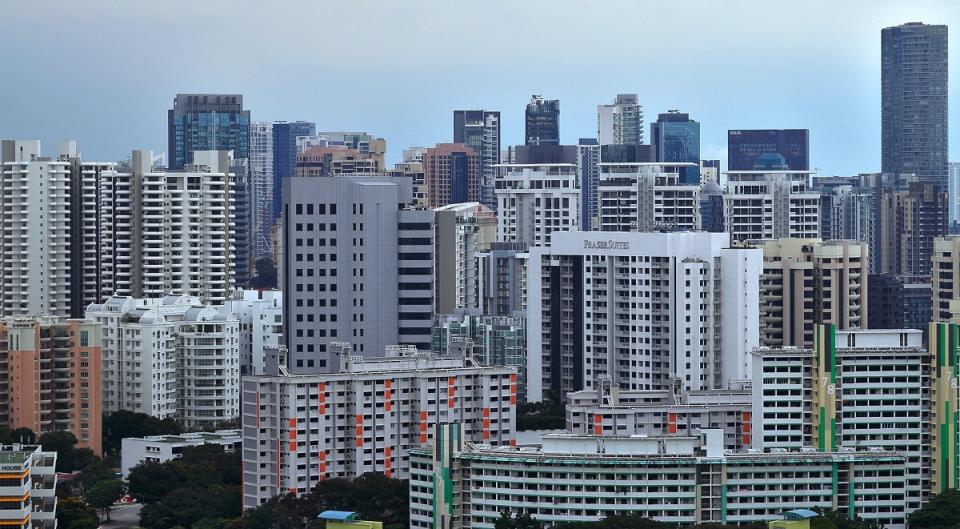Government releases yet another set of property cooling measures amid rising market interest rates

The measures will take effect from Sept 30.
The government has introduced yet another set of property cooling measures, where it seeks to ensure prudent borrowing amid the rising market interest rates. The new set of cooling measures also seeks to moderate demand in the Housing & Development Board (HDB) resale market to ensure that HDB resale flats remain affordable.
The new measures will take effect on Sept 30.
The measures were released jointly by the Monetary Authority of Singapore (MAS), the Ministry of National Development (MND) and HDB in the wee hours of Sept 29. The last set of cooling measures was released less than a year ago, on Dec 16, 2021.
Higher interest rate floor
Among the measures, MAS will assume higher interest rates when assessing borrowers’ repayment abilities. The revision reflects the higher interest rates that are expected over the medium term compared to the period of “exceptionally low rates” from 2013 to 2021.
This will be done via two means. For property loans granted by private financial institutions, MAS will raise the medium-term interest rate floor that’s used to compute the total debt servicing ratio (TDSR) and mortgage servicing ratio (MSR) by 0.5 percentage points.
This means residential property purchase loans and mortgage equity withdrawal loans will be based on a medium-term interest rate floor of 4% per annum (p.a.) from 3.5% previously, or the thereafter interest rate.
The rate for non-residential property purchase loans and mortgage equity withdrawal loans has been raised to 5% p.a. from 4.5% previously.
This will apply to loans for property purchases where the option to purchase (OTP) is granted on or after Sept 30. If there is no OTP, this will apply to any sale and purchase agreements (SPA) that take place on or after Sept 30.
The actual interest rates charged for mortgages will continue to be determined by the private financial institutions.
Meanwhile, HDB will introduce an interest rate floor of 3% for computing the eligible loan amount for HDB housing loans.
The interest rate floor will apply to those who have applied for the HDB Loan Eligibility (HLE) letter received on or after Sept 30. According to HDB, this will not affect the actual HDB concessionary interest rate, which will remain unchanged at 2.6% p.a. from Oct 1 to Dec 31.
“The revised medium-term rate floors ensure that households borrow prudently for their property purchases in a higher interest rate environment,” reads the joint statement. “This is necessary as property loans are long-term commitments and are often the households’ largest liability. Some borrowers may need to right-size their intended property loans but will be better able to service these loans when interest rates rise.”
Lower LTV limit
At the same time, the government will lower the loan-to-value (LTV) limit for HDB housing loans to 80% from 85% previously. The lower LTV limit will apply to new flat applications and resale applications on or after Sept 30.
According to MAS, MND and HDB, the new measures are not expected to affect first-time home buyers and lower-income buyers due to the “significant housing grants”.
The revised LTV limit does not apply to loans granted by private financial institutions, for which the LTV limit remains at 75%.
In addition, a 15-month period will be imposed for private residential property owners and former owners of private residential properties to buy a non-subsidised HDB resale flat to moderate demand in the HDB resale market. The wait-out period will not apply to seniors aged 55 years and above who are moving to a four-room or smaller resale flat. This measure is said to be a temporary one which will be reviewed in future depending on the overall market conditions and housing demand.
See Also:
Click here to stay updated with the Latest Business & Investment News in Singapore
MAS October tightening may not be enough for Singdollar to outpace the US dollar
Singapore all-items CPI increase by 7.5% y-o-y in August; MAS Core Inflation up by 5.1% y-o-y
Get in-depth insights from our expert contributors, and dive into financial and economic trends

 Yahoo Finance
Yahoo Finance 